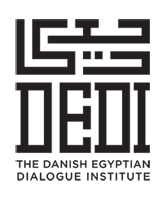PEN International Statement on Freedom of Expression in Ecuador

8 February 2012
PEN International is deeply concerned by the state of free expression in Ecuador
The latest worrying developments include a change in electoral law that will choke reporting on the 2013 presidential election, and a recent call from President Rafael Correa for restrictive changes to the Organization of American States’ office of the Special Rapporteur for Freedom of Expression.
However, one of the biggest threats to free expression in Ecuador remains the regular use of outdated criminal anti-defamation law to silence critical voices: during that last three years, journalists at the newspapers Hoy and La Verdad, and at least one radio journalist, have received prison sentences for criminal defamation.
The risk run by journalists in Ecuador who criticize political figures is highlighted by the prosecution of the leading opposition daily, El Universo. In 2011, President Correa brought a criminal complaint against the newspaper over an article that made a number of serious accusations against him. The president demanded jail sentences and large fines for those responsible. Despite the newspaper’s offer to publish a correction, three-year prison sentences and US$40 million in fines were handed down to Emilio Palacio, (the writer of the article), and to each of the newspaper’s co-directors: Carlos Eduardo Pérez Barriga, César Enrique Pérez Barriga and Carlos Nicolás Pérez. All four appealed and their case is ongoing.
The use of criminal anti-defamation law runs contrary to Ecuador’s free expression obligations under both the International Convention on Civil and Political Rights and the American Convention on Human Rights.
More than a decade ago, the Inter-American Commission on Human Rights established that the use of criminal law to sanction expressions about public officials violates article 13 of the American Convention on Human Rights which protects freedom of expression. It stated that such sanctions were unnecessary, disproportionate, and could not be justified by any imperative social interest, and that they also constituted a form of indirect censorship.
PEN International calls on Ecuador to recognize its free expression obligations under international human rights treaties, to reform its outdated criminal libel law and on President Correa to withdraw his case against El Universo, its staff and co-directors.
John Ralston Saul












 Doris Poklekowski.jpg)













